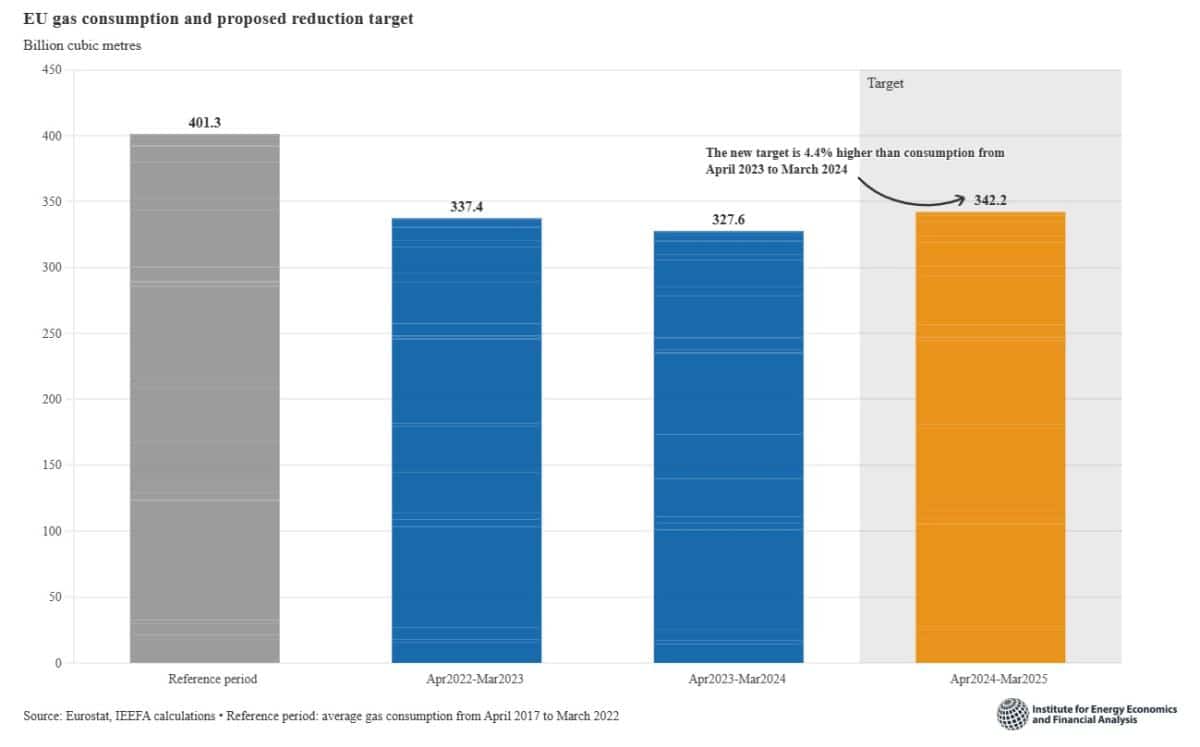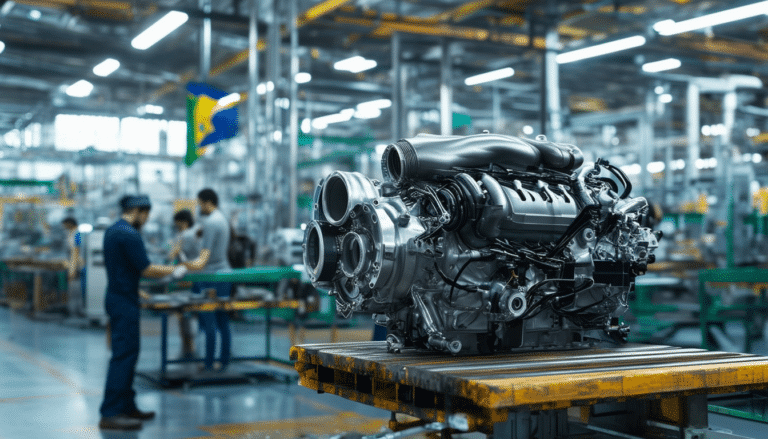The decrease in gas usage in the EU is progressing positively, although the new target poses challenges

In a context of growing concern for sustainability and energy security, the European Union has made remarkable progress in reducing gas usage in recent years. Through initiatives such as REPowerEU, member states have exceeded established gas reduction targets, demonstrating a firm commitment to the energy transition. However, the arrival of new targets poses challenges that could threaten this positive progress, including the possibility of an increase in gas demand and the need to maintain a strategy aligned with long-term climate goals.
The European Union has experienced significant progress in reducing gas consumption in recent years, surpassing established targets. However, the recent commitment to establish new goals brings challenges that may complicate this progress. Despite the achievements made, tensions persist in the energy market that require constant attention.
Significant Progress in Reducing Gas Usage
Since the launch of the REPowerEU initiative in May 2022, the EU has aimed to gradually eliminate its dependence on Russian fossil fuels by 2027. This strategy has been designed based on three fundamental pillars: energy savings, increasing the use of renewable energies, and diversifying energy supply sources. Through voluntary measures, member states have significantly reduced gas consumption, with a 20% decrease between 2021 and 2023.
During the initial implementation periods, gas demand decreased by 18% between August 2022 and March 2023, and again in the period from April 2023 to March 2024. This success has been attributed to the adoption of innovative energy policies and the commitment of member states to modify their energy consumption habits.
Challenges Posed by the New Reduction Target
Despite success in reducing gas usage, the recent announcement of a new reduction target has raised concerns. The European Commission has proposed that, between April 2024 and March 2025, member states must achieve a new reduction goal of 15%. However, this target is based on the same reference period used previously, which could pave the way for an increase in consumption if the implemented policies are not effectively managed.
Experts argue that this new goal could be compromised by various variables affecting the gas market. Geopolitical uncertainty and severe weather conditions can influence supply and demand levels, making the situation even more critical and difficult to manage. Furthermore, the possibility that certain countries may not meet the established targets jeopardizes the collective effort of the EU.
Comparison of the Impact on Gas Reduction in Different Countries
The figures show significant disparities in the performance of member states in reducing gas consumption. For example, countries like Finland and Denmark managed to reduce their consumption by over 40%, while others, such as Spain and Poland, fell short compared to the imposed targets. This contrast highlights that the implementation of effective energy policies may be conditioned by other economic and structural factors in each country.
The Role of LNG and Energy Security
As Europe moves away from gas usage, it is also important to consider the role of liquefied natural gas (LNG) in the continent’s energy strategy. During the most acute energy crisis, many countries turned to LNG to secure supply. However, dependence on this type of fuel could be counterproductive if the goal is to achieve a sustainable energy transition.
Energy security remains a critical factor, as the EU must adequately supply to avoid future gas consumption-related crises. In the long term, policies should focus on minimizing dependence on fossil fuels and accelerating the transition to more sustainable and clean energy sources.
Conclusion on the Future of Gas Consumption in the EU
The measures adopted by member states in recent years have proven effective in reducing gas consumption, but the future presents a landscape filled with uncertainties and challenges. Policies and technologies focused on energy efficiency and innovation will be crucial to maintaining the momentum of the energy transition and ensuring a secure and sustainable supply. Cooperation and continuous commitment from all countries of the European Union are essential to addressing these challenges and achieving the proposed goals.
Follow us on social media
Advances and Challenges in Reducing Gas Usage in the EU
The transition towards a more sustainable energy future in the European Union has shown significant advances in reducing gas usage. Since the implementation of the REPowerEU strategy, member states have exceeded their initial targets, achieving reductions of 18% and 20% in gas consumption during the established periods. These figures demonstrate a collective commitment from member countries in the pursuit of cleaner, renewable alternatives, aligning with principles of sustainability and energy efficiency.
However, as new goals are set for the immediate future, challenges arise that could put this progress at risk. The proposal of a new target that allows for certain increases in gas consumption raises concerns about the decisions that could be made in the coming years. This could lead to a potential setback in the advances achieved, affecting energy supply security and the EU’s ability to face future crises, such as those driven by economic or geopolitical factors.
Moreover, the need for constant diversification in energy supplies becomes a fundamental axis for stability. As member countries face different realities and capacities, gas consumption reduction policies must be adaptable and effective. The implementation of new technologies and efficient measures is crucial to ensure that the trend towards gas reduction not only continues but also becomes the norm.
Commitment and collaboration among member states will be essential in achieving the outlined goals and ensuring that the energy transition in the EU progresses sustainably and responsibly.



